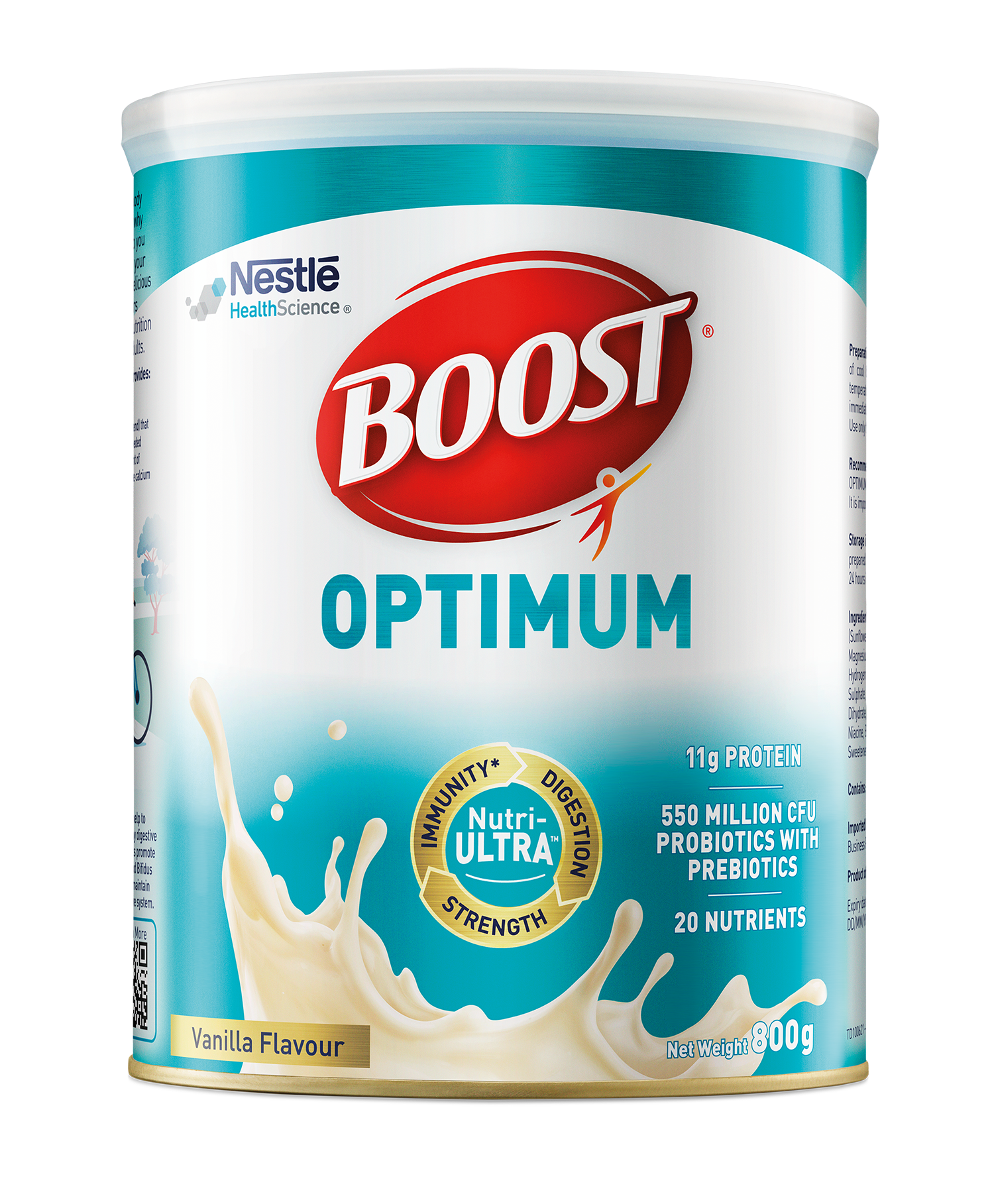FOUR ALLIES FOR HEALTHY AGING
Embracing aging means acknowledging and embracing the changes of our bodies and perspectives on life. Aging can be a positive process, especially if you are armed with knowledge of what supports good health, and are open to discover new approaches and maybe even a few new habits. Here are four allies that can support you in your journey of healthy, positive aging:
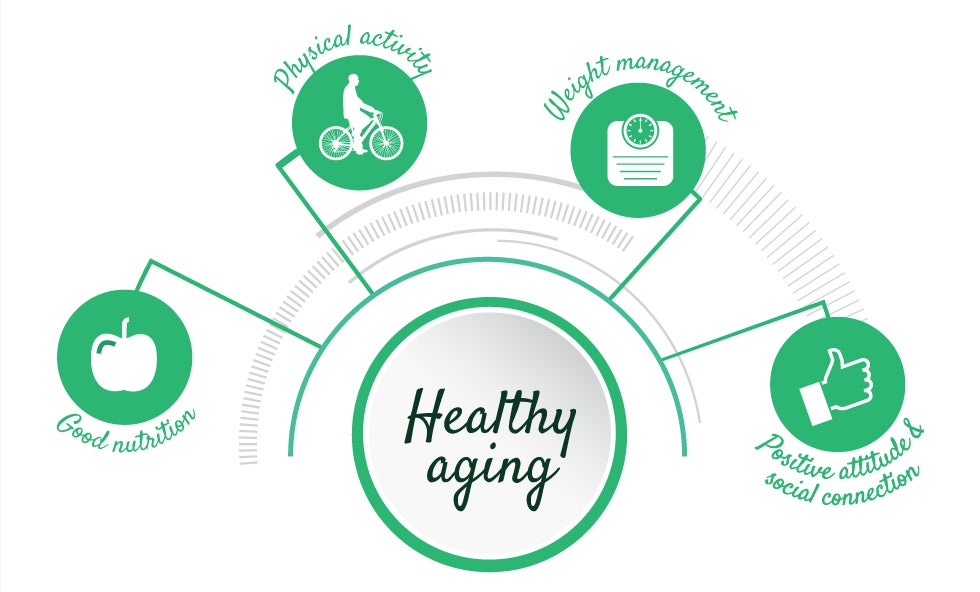
Good Nutrition
As the body changes with age, nutritional needs also change. At the same time, older people tend to eat less so achieving the recommended daily intake of key nutrients can be challenging.
Studies1 show that older adults are lacking various nutrients, many of which play a key role in reducing age-related health issues. For example, half of elderly people are consuming less than the recommended daily amount of protein and up to 92% have low levels of vitamin D blood concentration2. Other important nutrients often lacking include vitamin B123, B64, E5 and C6, and minerals such as calcium, selenium or zinc.
Ensuring you get enough nutrients – through subtle dietary changes and/or use of supplements - can contribute to improved wellbeing.
Other tips for improved diet and nutrition:
- Keep track of your food consumption for a week to help assess your nutrient level intake; discuss it with your doctor or other health care professional
- Drink at least 2 liters of water daily. The European Food Safety Authority states that 2 liters of water/day contribute to the maintenance of normal physical and cognitive functions; fluid intake is especially important for older adults wanting to maintain good activity levels and independence7.
- Plan meals ahead of time
- Make shopping an enjoyable social event; invite a friend to join you
- Prepare meals that are appealing to the senses
- Make mealtimes social. Enjoy the food and rapport while helping yourself and others stick to a healthy diet
- Consider high quality nutritional supplements if needed to help achieve the right nutrient levels
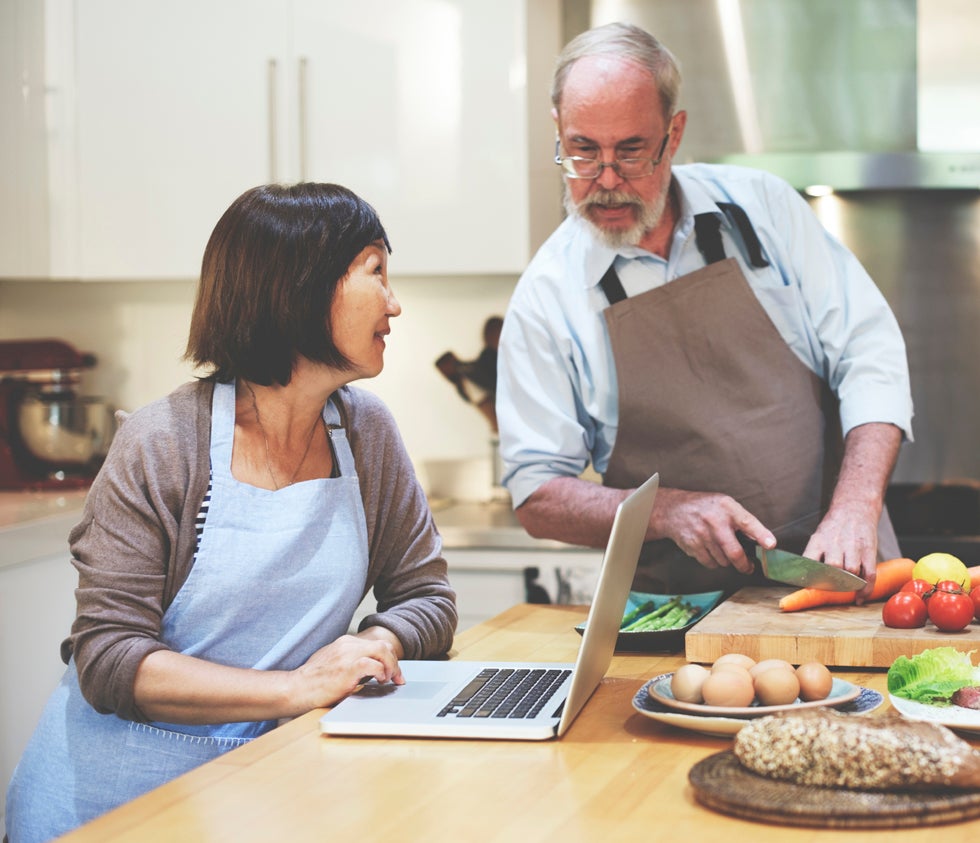
Physical activity
The impact of moderate physical activity of at least 30 minutes per day is invaluable to health and wellbeing at any age - contributing to lowered risk of illness, improved mood, greater independence and more social interaction compared to inactive people.
Older adults who do regular physical activity are more likely to rate their health as ‘excellent,’ further promoting positive mental wellbeing8.
Exercise does not need to be strenuous, just regular. Engage your family and friends. Enjoy regular physical activities such as swimming or gardening. Find additional motivation by checking with your local community or fitness center for specific programs for older adults. In particular look for activities that focus on:
- Aerobic exercise such as walking briskly, jogging or biking increases your heart rate – good for your heart, as well as blood pressure8
- Strength training – In addition to ensuring you get enough protein in your diet, weight training significantly supports healthy muscle mass and bone density which ultimately helps guards against frailty, falls, lack of mobility and lack of independence.
Flexibility and balance exercises (as found in yoga) – can help guard against stiff muscles, injuries and falls. Even simple acts such as standing on one foot while brushing your teeth or washing dishes can contribute to improved balance.
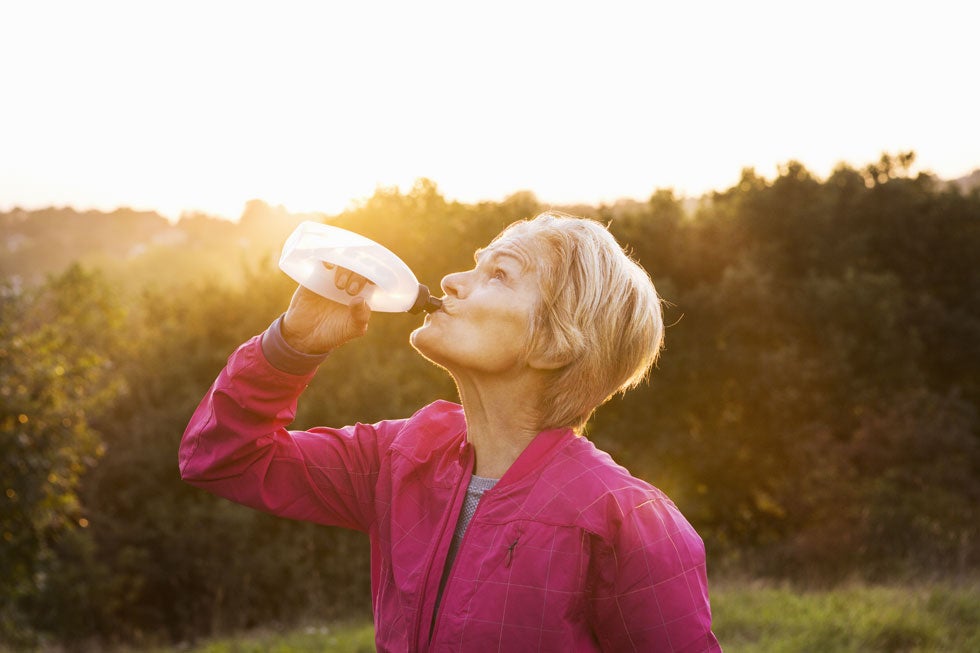
Weight management
Weight management is key for good health at any age. Of course weight issues can be influenced by many factors - from genes and stress to lifestyle choices, including diet and physical activity levels. To age well, seek to manage the factors within your control such as eating a balanced diet focused on moderate portions, and enjoying at least 30 minutes of daily physical activity. Excess weight can get in the way of good mobility and a positive attitude.
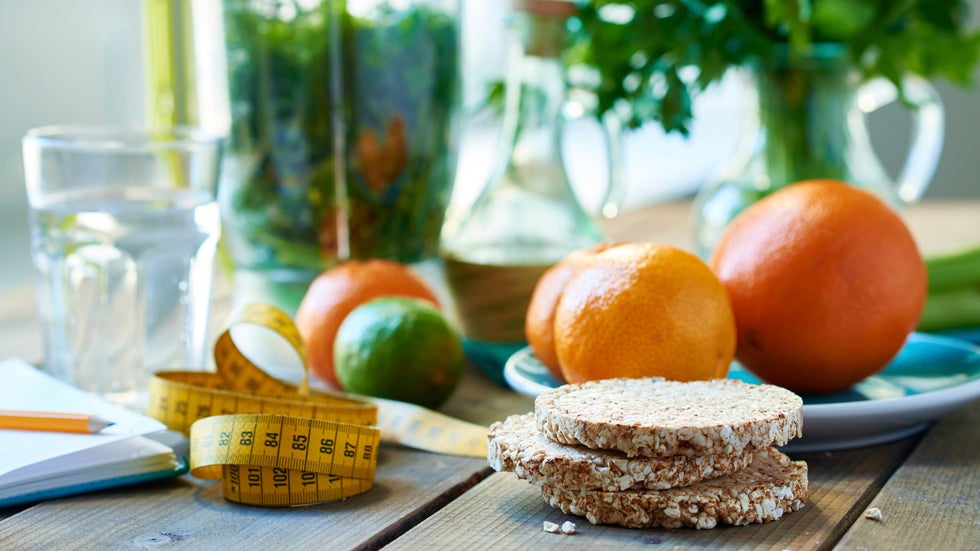
Positive Attitude & Social Connection
Looking after mental health is important for everyone especially for those interested in healthy aging. Here are some tips that can help to boost wellbeing:
- Share time with loved ones even if it’s simple things like everyday meals
- Stay connected with family, friends and community whether it’s in-person, by phone, email or social media
- Keep moving - Physical activity promotes mental, physical and social wellbeing
- Get a good night’s sleep – it can help with recovery, lower stress and support greater energy and optimism.

To learn more, read Maintaining Mobility and the Importance of Protein for healthy aging.
2. Van der Wielen RP, et al. Serum vitamin D concentrations among elderly people in Europe. Lancet. 1995;346(8969):207-10.
3. Oberlin BS, et al. Vitamin B12 deficiency in relation to functional disabilities. Nutrients.2013;5(11):4462-75.
4. Van der Wielen RP, et al. Vitamin B-6 malnutrition among elderly Europeans: the SENECA study.J Gerontol A Biol Sci Med Sci. 1996; 51(6):B417-24.
5. Polito A, et al. Estimation of intake and status of vitamin A, vitamin E and folate in older European adults: the ZENITH. Eur J Clin Nutr. 2005; 59 Suppl 2:S42-7.
6. Fritz K and Elmadfa I. Quality of nutrition of elderly with different degrees of dependency: elderly living in private homes. Ann Nutr Metab. 2008; 52 Suppl 1:47-50.
7. EFSA Journal 2011;9(4):2075. Scientific Opinion on the substantiation of health claims related to water and maintenance of normal physical and cognitive functions (ID 1102, 1209, 1294, 1331), maintenance of normal thermoregulation (ID 1208) and “basic requirement of all living things” (ID 1207) pursuant to Article 13(1) of Regulation (EC) No 1924/20061
8. Centres for Disease control and prevention CDC. Physical Activity and Health: A Report of the Surgeon General. Older Adults. http://www.cdc.gov/nccdphp/sgr/olderad.htm
